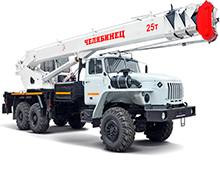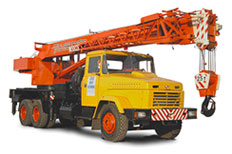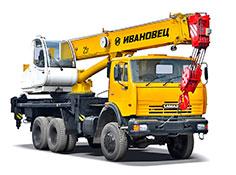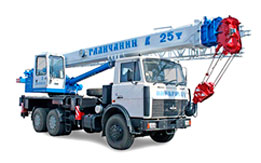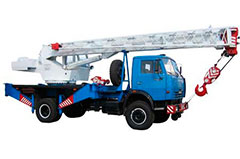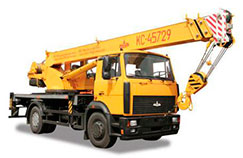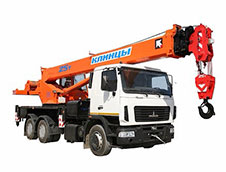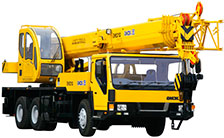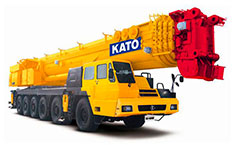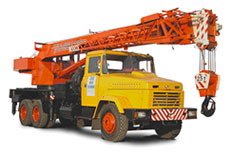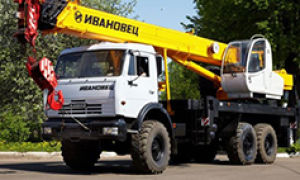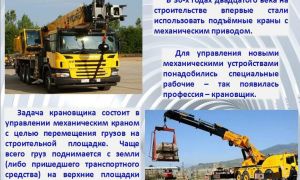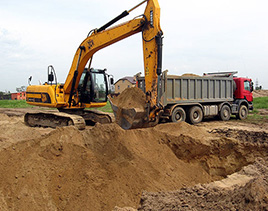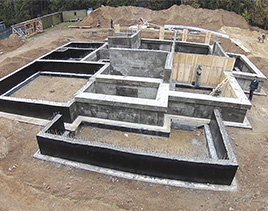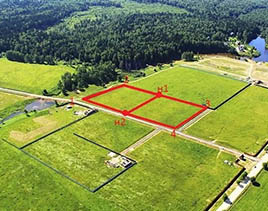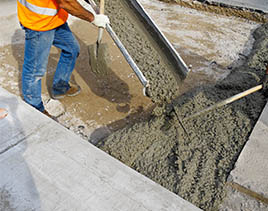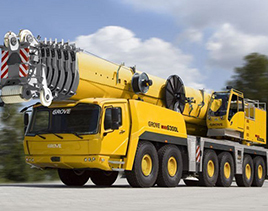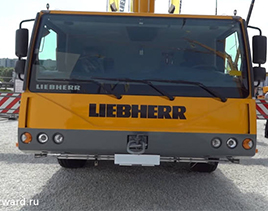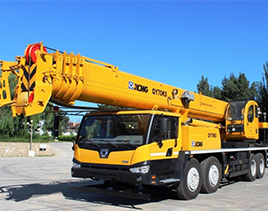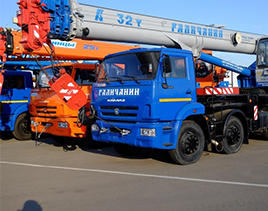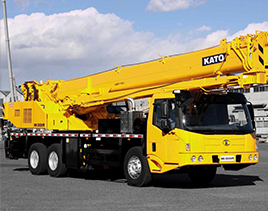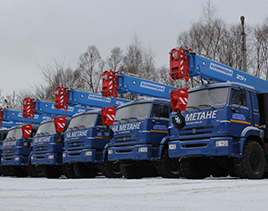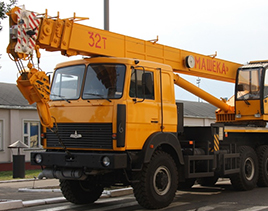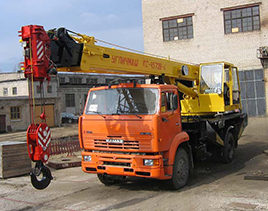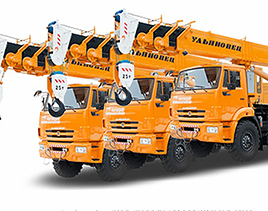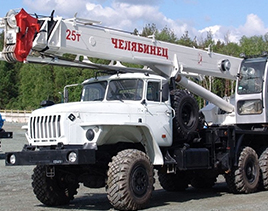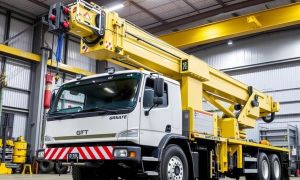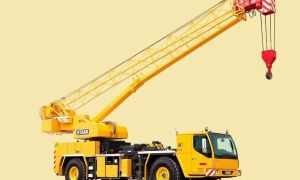Crane operators play a crucial role in industries like construction, shipping, and manufacturing. Their skills directly impact safety, efficiency, and project success. Given the importance of their job, ensuring that crane operators maintain their proficiency through regular re-certification is vital. But how often should crane operators be re-certified? The answer depends on various factors, including regulatory requirements, type of crane, and evolving safety standards. In this article, we will explore all the nuances around crane operator re-certification, shedding light on why it is necessary, the recommended timelines, and best practices to stay compliant and safe.
The Importance of Re-Certification for Crane Operators
Operating a crane requires precision and expertise. Though initial certification verifies an operator’s knowledge and skills, time and changes in the workplace mean assessments cannot remain static. Re-certification ensures that crane operators stay up-to-date with the latest safety protocols, technological advancements, and regulatory changes. It helps reduce accidents, enhance operational efficiency, and maintain employer and public trust.
Safety is the core driver for re-certification. According to the Occupational Safety and Health Administration (OSHA), crane-related accidents cause numerous injuries and deaths annually. Regular re-certification emphasizes continuous learning and adaptation, which are essential in such a high-risk profession.
Moreover, industries frequently witness new crane models, upgraded controls, stricter environmental regulations, and improved safety systems. Continuous training and re-certification prepare operators to adapt to these evolving demands without compromising safety.
Understanding Crane Operator Certification and Re-Certification
Before diving into how often crane operators should be re-certified, it’s helpful to understand how certification works initially.
Initial Certification Process
Most crane operators begin by undergoing rigorous training that includes both classroom instruction and hands-on practical experience. They then take written and practical exams administered by accredited bodies, such as the National Commission for the Certification of Crane Operators (NCCCO) in the U.S. Some employers may also require additional certifications based on specific crane types or industry standards.
Re-Certification Defined
Re-certification is the process by which certified crane operators renew their credentials periodically to demonstrate that they still meet the necessary skills and knowledge criteria. This typically involves refresher courses, updated exams, and sometimes practical demonstrations on newer equipment or procedures.
How Often Should Crane Operators Be Re-Certified?
Now to the heart of the matter: the frequency of re-certification. Various regulatory agencies and certification bodies provide guidelines that operators and employers should follow.
OSHA Regulations
OSHA does not mandate a specific re-certification period for crane operators. Instead, OSHA requires employers to ensure their operators are competent and qualified on an ongoing basis, which can be done through frequent evaluations or formal re-certification.
NCCCO Recommendations
The NCCCO, one of the leading certifying bodies, recommends re-certification every 5 years. This cycle ensures operators stay current on safety protocols and skill requirements. Beyond the typical re-certification, NCCCO also offers voluntary programs and continuing education courses to encourage ongoing learning.
Employer Requirements and Industry Standards
Certain employers or industries may impose stricter re-certification intervals tailored to their operational environment. For example, operators working with highly specialized cranes or in hazardous conditions might be required to renew certifications every 3 years or even annually. It depends on factors such as:
- Complexity of the machinery
- Hazardous job site conditions
- Previous safety violations or incidents
- Internal company safety policies
State and Local Regulations
Some states or municipalities enforce their own rules regarding operator certification and re-certification, which can influence timing. For example, states like California have stricter crane operator licensing and re-certification requirements compared to federal OSHA guidelines.
Factors Affecting Re-Certification Frequency
While 5 years is a commonly accepted industry standard for crane operator re-certification, several factors can prompt more frequent renewals:
| Factor | Impact on Re-Certification Frequency | Explanation |
|---|---|---|
| Type of Crane Operated | More specialized cranes require more frequent re-certification | Cranes with complex controls or unique hazards demand operators update their skills more regularly. |
| Industry Environment | Hazardous or high-risk environments shorten re-certification intervals | Construction sites with frequent changes or maritime environments may require yearly checks. |
| Incident History | Accident or safety violations can trigger earlier re-certification | Operators involved in incidents are often subject to reassessment to ensure understanding and compliance. |
| Technological Advancements | Rapid tech changes could necessitate more frequent re-training | New crane features or safety technology can outdate existing certifications quickly. |
| Employer Policies | Some companies enforce stricter re-certification schedules | To enhance safety culture, employers may opt for more frequent assessments. |
Steps Involved in Crane Operator Re-Certification
Re-certification is not just about passing a test. It is a holistic process designed to retest skills, update knowledge, and reinforce safety awareness.
- Application for Re-Certification: Operators or employers must submit applications ahead of certification expiry to the relevant certifying body.
- Review of Continuing Education: Candidates often need to provide evidence of ongoing training or work experience.
- Written Examination: Tests assess knowledge on new regulations, safety protocols, and crane operation principles.
- Practical Skills Test: Hands-on demonstrations ensure that operators can safely and efficiently manage crane controls and emergency situations.
- Medical Evaluation (occasionally required): Some certifiers require physical fitness verification to ensure operators meet health and safety demands.
- Issuance of New Certification: Upon passing all requirements, operators receive updated credentials valid for another period (usually 5 years).
Maintaining Certification Beyond Re-Certification: Tips for Crane Operators
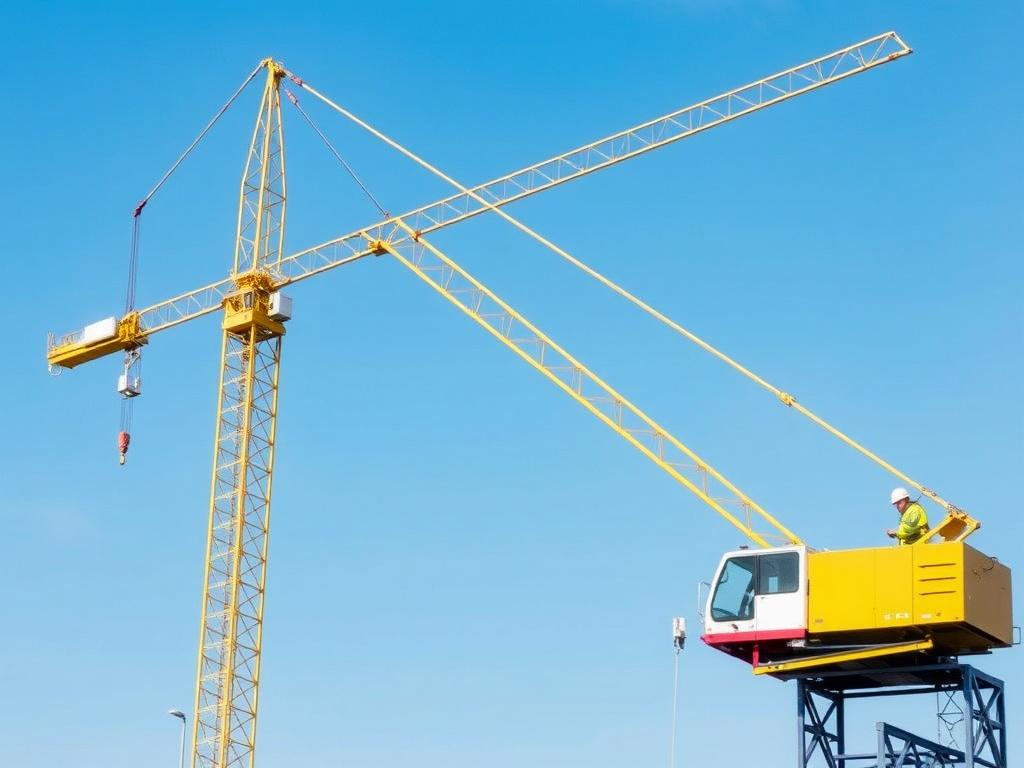
Waiting until re-certification is near can create unnecessary pressure. Operators are encouraged to maintain their skills and knowledge continuously, which not only aids smooth re-certification but also promotes workplace safety.
Keep Up With Industry Updates
Subscribe to industry newsletters, attend trade conferences, and participate in webinars centered on crane operation advancements. Knowing the latest trends and regulations prepares operators well ahead of their re-certification.
Regular On-the-Job Training
Employers should facilitate ongoing training sessions and refresher courses. Practical experience combined with instructor feedback helps operators stay sharp.
Safety First: Report & Learn From Incidents
Mistakes happen, but learning from near-misses or incidents is essential. Operators should actively engage in safety discussions and contribute to hazard identification.
Maintain Long-Term Physical and Mental Fitness
Operating cranes demands good coordination, attention, and physical endurance. Staying healthy supports prolonged performance and reduces injury risks.
Comparing Certification Bodies and Their Re-Certification Policies
To help you understand how different certification organizations manage re-certification, here’s a quick comparison of some well-known bodies:
| Certification Body | Re-Certification Interval | Requirements | Notes |
|---|---|---|---|
| NCCCO (National Commission for the Certification of Crane Operators) | Every 5 years | Written and practical exams, continuing education accepted | Most widely recognized in the U.S. |
| ICUEE (International Construction and Utilities Equipment Exposition) – Certification in partnership | Varies, typically 3-5 years | Periodic refresher courses and assessments | Offers certification linked to equipment manufacturers |
| State-Specific Certifications (e.g., California) | Varies state-by-state; often every 2-5 years | State exams and health screenings | More rigid and specific to state laws |
| Employer-Provided Certification Programs | Varies; sometimes annually | In-house testing and practical evaluations | Customized for company needs and safety policies |
Frequently Asked Questions Regarding Crane Operator Re-Certification
Q: Can crane operators skip re-certification if they have a lot of experience?
A: No. Experience alone does not replace the need for re-certification. Updated knowledge of safety standards and technology must be demonstrated regularly.
Q: What happens if a crane operator fails to re-certify on time?
A: Operators may lose their legal ability to operate cranes until they complete re-certification. This can affect employment and project schedules.
Q: Are there age limits for crane operator certification?
A: While no fixed upper age limit exists, operators must pass medical evaluations proving they are fit to operate safely.
Q: How can employers track re-certification dates?
A: Many companies use software or certification management systems to monitor expiration dates and schedule reminders.
Q: Is re-certification expensive?
A: Costs vary by certifying body and location but generally represent a small investment considering the safety benefits and regulatory compliance.
The Future of Crane Operator Certification and Re-Certification
As industries evolve, so will training and certification standards. Emerging technologies such as virtual reality (VR) simulators offer immersive, realistic training experiences that could revolutionize how crane operators prepare for exams and re-certifications. Automated and remote-controlled cranes may also change the skill sets required, potentially shifting certification focus toward technological competency and cybersecurity understanding.
Furthermore, regulatory agencies worldwide increasingly push for harmonized standards to ease worker mobility across regions and industries. Continuous improvement in certification frameworks, combined with data-driven safety management, will likely shape the next generation of re-certification guidelines.
Summary Table: Key Points About Crane Operator Re-Certification
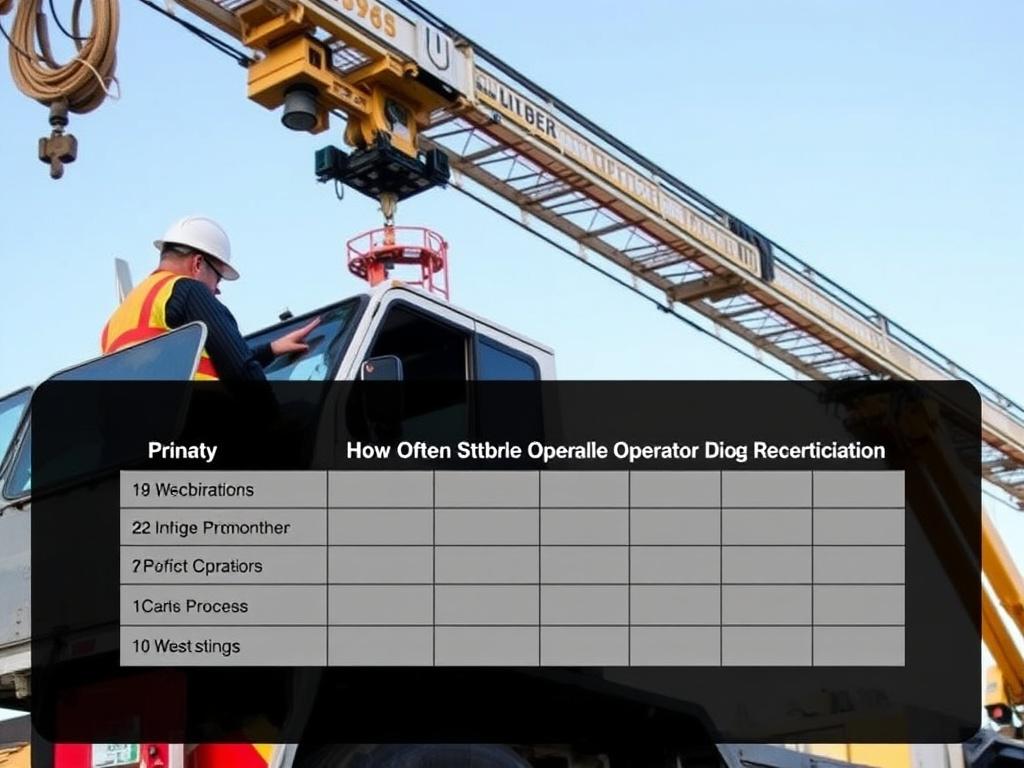
| Aspect | Details |
|---|---|
| Typical Re-Certification Frequency | Every 3 to 5 years, depending on regulations and employer policies |
| Main Purpose | Ensuring ongoing proficiency, safety awareness, and updated knowledge |
| Common Requirements | Written and practical exams, training updates, medical evaluations |
| Regulatory Bodies | NCCCO, OSHA (indirect), state agencies, employer programs |
| Factors Influencing Schedule | Crane type, work environment, past incidents, technological changes |
| Benefits of Re-Certification | Improved safety, reduced accidents, compliance, career advancement |
Conclusion
How often should crane operators be re-certified is a question with a nuanced answer. While the standard recommendation by leading authorities such as the NCCCO is every five years, this interval may vary significantly based on factors like the type of crane, job site hazards, employer safety policies, and technological evolution. Re-certification is vital not just to comply with laws but to maintain a culture of safety and operational excellence within industries that depend heavily on crane operation. For crane operators, staying proactive about re-certification and continuous learning is the best way to ensure longevity in their careers and safety on the job. Employers likewise bear responsibility for enforcing proper re-certification schedules and supporting ongoing education. In a dynamic and potentially dangerous workplace, regular re-certification safeguards lives, equipment, and projects — making it an indispensable element of crane operation management.

